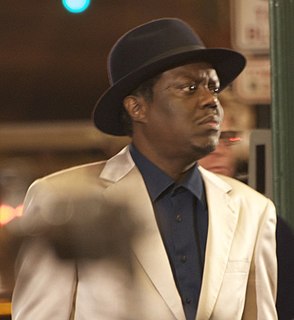A Quote by Lea Salonga
Don't expect a pat on the back for merely doing your job, but know that you'll get one for doing it exceptionally well.
Related Quotes
For the most part, I meet people who are like 'I really like your work. I'm watching your career. I want to see you do well. Keep doing what you do.' I get that so much, and it's so reassuring. I often wish that so many people, who just work normal jobs, could get a pat on the back as much as I do, because it's very complimentary.
I think when you start to do well and get your confidence back, everything becomes more fun. When you're playing with not your full capacity of confidence, I think things get a little tough. I knew I could be doing better than what I was doing. Even though I was ranked 5 or 4 or whatever it was, I wanted to get back to the level I thought I could play at.
Writing a novel - unlike operating a piece of heavy machinery, say, or cooking a chicken - is not a skill that can be taught. There is no standard way of doing it, just as there is no means of telling, while you're doing it, whether you're doing it well or badly. And merely because you've done it well once doesn't mean you can do it well again.
All you do as a performer is keep doing it. If you keep doing it, then it depends on why you're doing it. If you're doing something for superficial, monumental reasons and if you're doing it for female attention, or if you're doing it for money, it's like being upset. Only way you can get upset is when you expecting something. If you don't get this award or don't get that award, that because you expect something.
That little boy is driving well and he's putting well. He's doing everything it takes to win. So, you know what you guys do when he gets in here? You pat him on the back and say congratulations and enjoy it and tell him not serve fried chicken next year. Got it? [...] Or collard greens or whatever the hell they serve.
No matter how senior you get in an organization, no matter how well you're perceived to be doing, your job is never done. Every day, you get up and the world is changing; your customers are expecting more from you. Your competitors are putting pressure on you by doing more and trying to beat you here and beat you there.
When I give a speech at a corporate event, I often ask those in attendance, 'Do you know how to tell if you're doing the job?' As heads start whispering back and forth, I provide these clue: 'If you're up at 3 A.M. every night talking into a tape recorder and writing notes on scraps of paper, have a knot in your stomach and a rash on your skin, are losing sleep and losing touch with your wife and kids, have no appetite or sense of humor, and feel that everything might turn out wrong, then you're probably doing the job.'




































